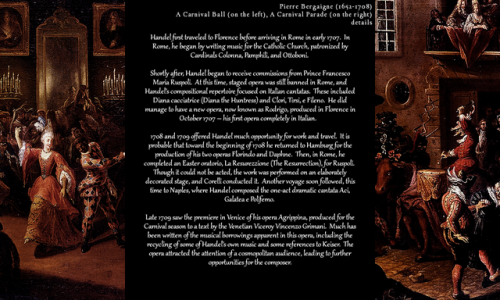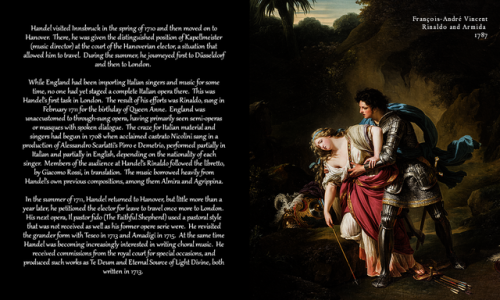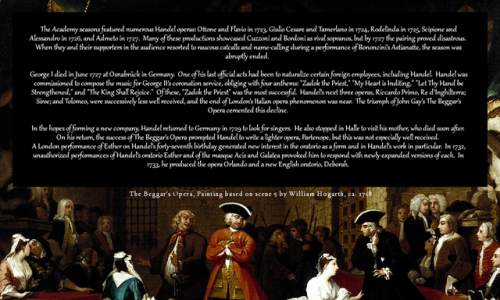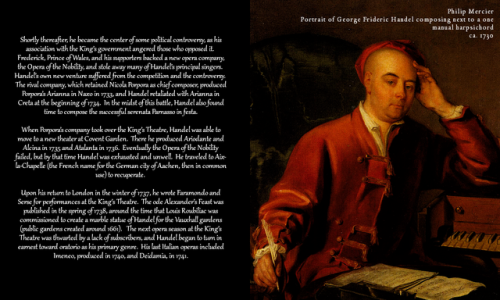#georg friedrich handel
Co-stars & Rivals: ANTONIO MARIA BERNACCHI
- Born: 23 June 1685
- Died: 1 March 1756
- Voice:alto
- Personality: Antonio Maria Bernacchi was an Italian castrato, composer, and teacher of singing. He studied with Francesco Antonio Pistocchi. His pupils included Farinelli, for a brief period during 1727, and the tenor Anton Raaff. Nowadays Bernacchi is best remembered for his association with the composer George Frideric Handel, in six of whose operas he sang. Bernacchi began his operatic career in Genoa in 1703. His appointment in 1714 as virtuoso to Prince Antonio Farnese led to widespread recognition throughout Europe, and he performed in operas by various famous composers of the day, including Hasse, Vinci, and Scarlatti. He was an especially frequent visitor to the theatres of Venice, appearing in more than twenty operas in that city between 1712 and 1724. In 1729 Handel took Bernacchi as his primo uomo for the second Royal Academy, in place of the departed Senesino. For Handel, Bernacchi created roles in Lotario (1729) and Partenope (1730). Despite his fine European reputation, Bernacchi’s success in England was mixed: though Charles Burney praised his intelligence as a singer, English audiences preferred Senesino. Though his natural musical gifts were not exceptional, he was renowned for technical virtuosity, especially in ornaments and cadenzas. He was accused of sacrificing expression to execution and adopting an instrumental style; his old master Pistocchi is said to have exclaimed: “I taught you to sing, and you want to play”. Bernacchi retired from the stage in 1738 and founded a famous singing school at Bologna. He died in 1756 in the city of his birth.
- One fact: In 1727 at Bologna Bernacchi had a contest with the famous Farinelli in a performance of La Fedelta (the later title of Orlandini’sAntigona). Though the younger Farinelli dazzled the audience with an elaborate cadenza, Bernacchi sang an even more higly embellished and polished aria that carried the day. The two castrati were rivals, yet thet become good friends and sang together frequently. Bernacchi taught some of his secrets to Farinelli, and the latter arranged a fine memorial service for his colleague after his death.
- One quote: Bernacchi has a vast compass, his voice mellow and clear, but not so sweet as Senesino, his manner better; his person not so good, for he is as big as a Spanish friar. (Mary Granvile)
- One hit: Dal mio ben che tanto amai (Demetrio)
Post link











